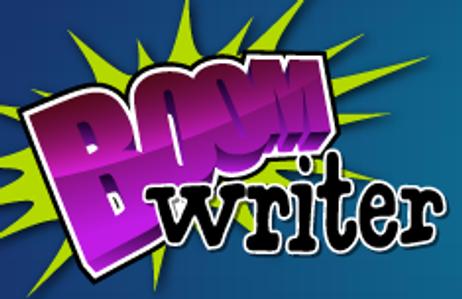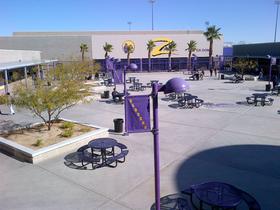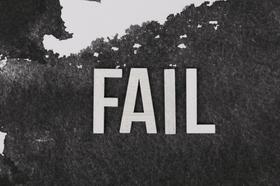A new type of technology is coming to two of the largest school districts in the country. Both Chicago and Boston Public Schools recently announced they will adopt the BoomWriter Digital Education Platform to transform public school students of all ages into published authors. BoomWriter allows a classroom to collaborate on a story that will eventually go to print with the students’ names listed as book authors.
Adding BoomWriter to the Classroom
According to a press release in the Wall Street Journal, Chicago Public Schools will introduce the BoomWriter Technology Heroes Program to public school classrooms next year, thanks to funding from Chicago-based CareerBuilder. The district will utilize the technology in grades 3-12 to bring a whole new level of writing instruction and engagement to the classroom.
“The BoomWriter program motivates students,” Brian Donahue, vice president of sales strategy for CareerBuilder, told the Wall Street Journal. “We expect a great deal of excitement as they see their words in print. BoomWriter helps young people develop their writing skills for a rapidly changing, technology driven world. This program is a great way to invest in our community and future workforce.”
Boston Public Schools will also introduce BoomWriter to students in the upcoming school year. Melissa Dodd, the school district's chief information officer, stated in the press release that the addition of BoomWriter coordinates with the district’s goals to promote college and career readiness among its students. The technology will also align Boston School with the educational innovation of the 21st century.
How it Works
BoomWriter offers a unique writing and reading instruction approach through collaboration with area authors. A published author gets the ball rolling by introducing a prompt that becomes the story's first chapter. Students then write what they think should happen next in the story – the book's second chapter. Once all the chapters are completed and submitted, students read them and vote on the one they think is the best. Students do not know who wrote the chapter at voting time and are not allowed to vote on their chapter.
The winning chapter becomes the book's next section, and the student who wrote the piece will have his name listed as an author. The process continues through subsequent chapters until the entire book is written. At that time, the book was published and distributed, and the students who contributed to the finished piece got the satisfaction of knowing they were now published authors in their own right.
About the Creation of BoomWriter
Tech Cocktail reports that BoomWriter was the brainchild of Chris Twyman and Ken Haynes. Twyman was a parent who pitched the idea for BoomWriter to her child’s teacher, who happened to be Haynes. Haynes used his 10 years of teaching experience to integrate the idea into a classroom setting, and a new method for teaching literacy to students of all ages was born.
“Although in some schools technology has become part of the educational process, too often it is separate and not integrated into the learning experience,” Haynes told Tech Cocktail. “Experts agree that technology, when it is integrated into the curriculum, revolutionizes the learning process.”
The intuitive delivery platform makes this tool accessible for teachers to adopt into the classroom. Most students already incorporate digital media and technology into their daily lives, so integrating technology in the school is a relatively natural step. The tool also adheres to the Common Core Standards that are now being introduced into school districts nationwide.
Boston Students to Team Up with Well-Known Author
BoomWriter technology will get its first trial run in Boston this summer. Business Wire reports that Massachusetts resident and author of the popular “Diary of a Wimpy Kid” series Jeff Kinney will launch a BoomWriter project in his hometown this summer. The camp will be produced as a collaboration between Kinney, local public broadcaster WGBH, and BoomWriter. The BoomWriter Storytellers Camp has teamed up with Kinney to host four different one-week camps to help middle school students in the state cultivate a love for writing and reading.
Kinney will present participants with a story prompt on the first day of camp. Students will then write their version of the next chapter individually. Writing pieces will be reviewed by teachers and trained counselors at the camp, who will then offer the students constructive feedback to improve their writing skills. Campers will vote on the finished pieces, and the winning chapters will go into the book hosted by Kinney. Interest generated by the camp is sure to go a long way in motivating Boston students to embrace the BoomWriter model in schools this fall.
“We are excited to work in association with WGBH,” Twyman told Business Wire. “They are the best of public broadcasting and are in the hearts of children everywhere. Together, we can inspire a love of writing, storytelling and learning, while also facilitating critical thought and creativity for a new generation of learners.”
BoomWriter brings literacy instruction to a new level by engaging students in a spirited, competitive atmosphere not usually seen with writing assignments in school. In addition, students must use reading and critical thinking skills to evaluate the various submissions and choose the best options for the book. BoomWriter integrates technology into the classroom and encourages students and teachers to look at the instructional process in a whole new way.
Questions? Contact us on Facebook. @publicschoolreview















